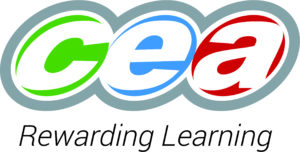 The Council for Curriculum, Examinations and Assessment (CCEA) is a Northern Ireland examinations awarding body and also advises the Department of Education (DENI) on matters concerned with the curriculum and assessment.
The Council for Curriculum, Examinations and Assessment (CCEA) is a Northern Ireland examinations awarding body and also advises the Department of Education (DENI) on matters concerned with the curriculum and assessment.
Financial Capability is a contributory subject strand within the statutory curriculum at Key Stage 3 and as part of it’s duties, CCEA supports teachers delivering the curriculum through the development of teaching and learning support materials. One such recently produced set of materials is for Financial Capability and the resource is called Financial Capability in a Digital World.
The resource was developed as pupil exposure to money within a teaching and learning environment has traditionally focused on cash. This includes recognising notes and coins and using them in the exchange of money. Pupils are also expected to use number skills in the context of money and make informed choices about spending and budgeting, with cash as the backdrop. However, technology is changing how we exchange money: cash is no longer the main method of payment; banking is mainly done online; and mobile devices and their apps are becoming more and more ubiquitous.
Therefore, the resource aims to addresses the gap in current materials when it comes to the use of technology
when banking,
spending and making financial decisions. It provides information and guidance for teachers who may not be familiar with or who have not personally used the current available technology.
The resource also has activities for pupils and these activities include teacher-led discussion as well as desk work, which pupils can work individually or in groups based on the context of the activity. There are also worksheets, which pupils can complete or work from to answer questions or create their own ideas.
The resource is comprised of three chapters.
The Apps chapter focuses on the increasing use of apps and the associated costs that could arise from their use.
For example, some apps are free to download and remain free to use. Others are free to download but have in-app purchases to extend the use of the app or to open up further features. There are apps that you must pay for first before you can download them which can come with all their features open but these apps may also include in-app purchases, which costs further money on top of the initial cost.
The Banking chapter focuses on the move from traditional branch banking to the increasing use of online banking, as well as the need to be safe when banking online.
Pupils are likely to be familiar with branch banks and branch banking. They might also be aware of telephone and online banking even if they haven’t used those banking methods. The chapter aims to make pupils fully aware of different kinds of banking methods, how banking has changed with the use of technology and how to bank safely in a digital world.
The Money chapter focuses on how payments and the exchange of money is changing within a digital world, as well as looking at what digital payment methods are currently available and growing in popularity.
Pupils will be very familiar with cash (notes and coins) and this is likely to be the main method they use for paying for things and also receiving money. They will also be familiar with plastic (debit and credit cards) and how they are used to pay for things. The chapter aims to make pupils aware that cash and plastic aren’t the only available payment methods and that technology provides people with different ways to make and manage payments.

Council for the Curriculum, Examinations and Assessment
29 Clarendon Road
Clarendon Dock
Belfast
BT1 3BG
Tel: +44 (0)2890 261200
Fax: +44 (0)2890 261234
Website: www.ccea.org.uk
info@ccea.org.uk